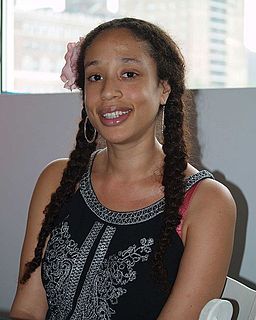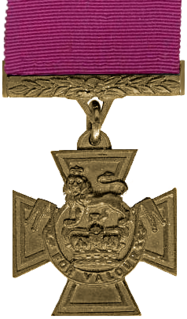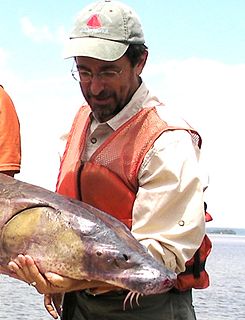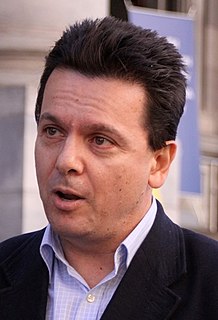A Quote by Neel Mukherjee
To be an Indian writer is to write, necessarily and inevitably, about politics, so it was a given that the story of the Ghoshes, the family at the centre of 'The Lives of Others,' should have a political soul.
Related Quotes
We need to give out portrayal of ourselves. Every non-Indian writer writes about 1860 to 1890 pretty much, and there is no non-Indian writer that can write movies about contemporary Indians. Only Indians can. Indians are usually romanticized. Non-Indians are totally irrepsonsible with the appropriation of Indians, because any time tou have an Indian in a movie, it's political. They're not used as people, they're used as points.
If you're a status quo writer, you're considered to not be political but that's as political as if you're a progressive writer. Some politics are asked to show their passports and others aren't. In the Dominican Republique, if you're slightly progressive, people have a lot of suspicions that you're up to some sort of conspiracy, that this is some sort of plot. On the other hand, if you're conservative and mainstream, people tend to take that as a given and don't notice the politics.
I don't buy into the idea that an Irish writer should write about Ireland, or a gay writer should write about being gay. But when I found the right story, I saw it as an opportunity to write about being a teenager and being gay. Most people, whether you're gay or straight or whatever, have experienced that relationship where one person is much more interested than the other.
There are people with an explicit political bent complaining about people having political agendas while nominating stories with political agendas. Is it political to try to be diverse? Is it political to try to imagine a non-heteronormative society? Yes, because it involves politics. But how do they expect us to not write about our lives?
Although I write in English, and despite the fact that I'm from America, I consider myself an Armenian writer. The words I use are in English, the surroundings I write about are American, but the soul, which makes me write, is Armenian. This means I am an Armenian writer and deeply love the honor of being a part of the family of Armenian wrtiters.
Every time someone reads a story about the politics poisoning the global warming stuff it makes it feel like a political story, meaning it's Us and Them, instead of what it is: this profound challenge we face given our energy norms right now, the fuels of convenience toward something new. No matter what the politics are, it's still an enormous transformation that has to take place.
I can't define myself as a political writer - I don't think I've earned it, and I don't function as a political writer in the way that many of the writers I admire do. It's not simply a question of context, of where I'm writing from - there is much in American society that urgently needs to be written about. I think your work is always engaged with politics in the looser sense of the word - and that looseness is itself a kind of privilege - because politics and culture are evidently intertwined.
No one can teach writing, but classes may stimulate the urge to write. If you are born a writer, you will inevitably and helplessly write. A born writer has self-knowledge. Read, read, read. And if you are a fiction writer, don't confine yourself to reading fiction. Every writer is first a wide reader.
No one can teach writing, but classes may stimulate the urge to write. If you are born a writer, you will inevitably and helplessly write. A born writer has self-knowledge. Read, read, read. And if you are a fiction writer, dont confine yourself to reading fiction. Every writer is first a wide reader.
Every family has a story that it tells itself, that it passes on to the children and grandchildren. The story grows over the years, mutates, some parts are sharpened, others dropped, and there is often debate about what really happened. But even with these different sides of the same story, there is still agreement that this is the family story. And in the absence of other narratives, it becomes the flagpole that the family hangs its identity from.
I was given the opportunity to write the kind of book that I wanted to write, rather than one that catalogues where I sang and what I sang and what I wore. I wanted to write a book about an American family, the family that has produced me. The longer I live, the more I realise the incredible support and love we were given as children.
If you run for election with a particular agenda about saving jobs, about strengthening manufacturing and farming jobs, about tackling predatory gambling and making governments accountable, if there's an opportunity to achieve that agenda with either side of politics, particularly if you come from the political centre, then it's an opportunity you should take up.




































